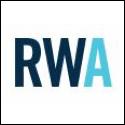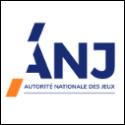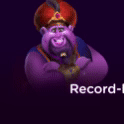Jackpocket Joins Campaign to Raise Awareness About the Risks of Youth Gambling
Lottery Tickets Make Great Gifts. But Not for Children.
NEW YORK, Dec. 14, 2022 /PRNewswire/ — This gift-giving season, Jackpocket is joining lotteries and community organizations across the country and around the world with a simple reminder: lottery tickets and scratch-offs make great gifts, but not for anyone under the age of 18.
Jackpocket, the first third-party app in the U.S. to provide a secure way to order official state lottery tickets, is participating in the 2022 Gift Responsibly Campaign organized by the National Council on Problem Gambling (NCPG) and the International Center for Youth Gambling Problems and High-Risk Behaviors at McGill University, to raise awareness about the risks of gifting lottery tickets to children.
Research shows that the earlier a person’s participation or even exposure to gambling is in childhood, the more likely they are to develop a gambling problem later in life. Gambling exposure during childhood is often through some kind of lottery product given by an adult who is likely unaware of the associated risks.
“Jackpocket strives to promote responsible gaming in every aspect of our business,” said Jackpocket founder and CEO Peter Sullivan. “We are proud to stand with the NCPG in raising awareness that lottery tickets and scratch-offs are appropriate gifts for adults only. You must be at least 18 years old to place ticket orders on Jackpocket, and we urge everyone to avoid giving lotto tickets as gifts to minors – during holidays and throughout the year.”
“Youth problem gambling has emerged as a significant and growing public health issue. We applaud Jackpocket’s commitment to raising awareness about risks of youth gambling through the Gift Responsibly Campaign,” said Keith Whyte, NCPG Executive Director. “Our message is a simple one: lottery tickets are never appropriate gifts for children.”
This is Jackpocket’s fifth year participating in the Gift Responsibly campaign. Jackpocket is the first third-party lottery service to receive a responsible gambling certification from the NCPG’s Internet Responsible Gambling Compliance Assessment Program. The company promotes responsible gaming year-round by offering consumer protections such as daily deposit and spend limits, self-exclusion, and in-app access to responsible gaming resources. Learn more about Jackpocket’s commitment to the responsible lottery at https://jackpocket.com/responsible-play.
About Jackpocket
Jackpocket is on a mission to create a more convenient, fun and responsible way to order lottery tickets. The first licensed third-party lottery courier app in the United States, Jackpocket provides an easy, secure way to order official state lottery tickets. Jackpocket is currently available in Arkansas, Colorado, Idaho, Minnesota, Montana, New Hampshire, New Jersey, New Mexico, New York, Ohio, Oregon, Texas, Washington, D.C. and West Virginia, and is expanding to many new markets. Download the app on iOS or Android and follow along on Facebook, Twitter and Instagram.
About the National Council on Problem Gambling
The National Council on Problem Gambling (NCPG) is neutral on legalized gambling. Based in Washington DC, NCPG is the only national nonprofit organization that seeks to minimize the economic and social costs associated with gambling addiction. If you or someone you know may have a gambling problem, contact the National Problem Gambling Helpline, which offers hope and help without stigma or shame. Call or text 1-800-GAMBLER or visit www.1800gamblerchat.org. Help is available 24/7 – it is free and confidential.
About International Center for Youth Gambling Problems and High-Risk Behaviors at McGill University
For over 20 years, the International Centre for Youth Gambling Problems and High-Risk Behaviours at McGill University has been at the forefront of leading-edge research aimed at identifying and understanding the critical factors related to youth gambling issues.
SOURCE: Jackpocket
Tags: Jackpocket, Gift Responsibly Campaign, National Council on Problem Gambling (NCPG), McGill University
























